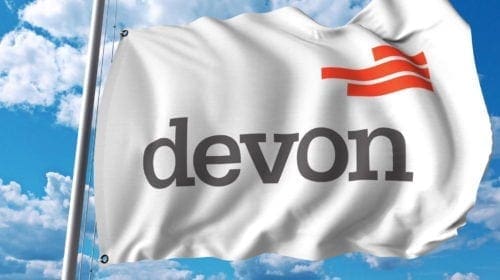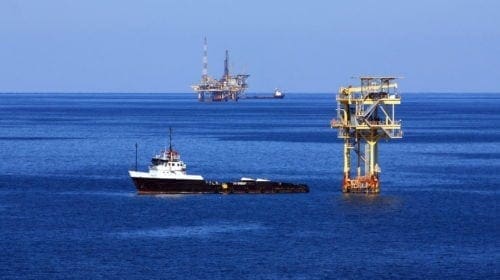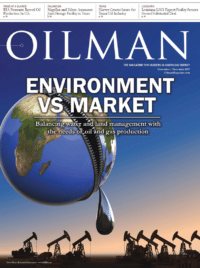The following is an interview with Dave McCarthy, Senior Director of Products at Bsquare. Bsquare is an Internet of Things (IoT) service provider based in Bellevue, Washington.

Tim McNally: How did you get started with the company, and how do you feel the company has progressed so far?
Dave McCarthy: So personally, I’ve been with Bsquare for 11 years coming up this November, and it’s been really interesting to watch the company change and grow over time. In the early days of the company, we really focused on embedded software, which I always describe as software anywhere other than a traditional laptop or PC. This would be software in control systems or in gas pumps, and all kinds of strange places where you couldn’t just take a CD and put it in and load up the software, it always requires special knowledge on how to marry software with unique hardware pieces, and that’s where we got our start. Over time, as we started working with different industries and different projects, it progressed us along the path of starting on software and equipment, and then moving into connectivity related to the software and equipment, to where we are today which is really all about the data that is being generated by that equipment. The things that we do, we do in a lot of industries, and for oil and gas, we’ve been involved now for probably only for a year or so.
TM: Why does Bsquare have a focus on industrial data?
DM: As I mentioned, throughout its history, Bsquare has been focused in general on helping companies realize business value in terms of smart connected devices and equipment. The main driver of that value is how you can leverage the data in any aspect of the business. Now, industrial companies, specifically, are probably in the best position to reap the most benefit given the scale of the operation and really the amount of money at stake with the types of things that they do.
TM: Have you found that oil and gas companies are pretty receptive to your products, or are they rather reserved at first until they hear the kind of solutions that you can provide to them?
DM: Well, I think the answer is different [for] us talking today than maybe it was a year or so ago. Oil and gas companies are really understanding that they need to modernize their operations, and the confluence of technology needed to achieve that fits into this overall umbrella of industrialized IoT. That’s what makes it a perfect fit for Bsquare and our products, which are really focused on that. Whereas a year ago people were still trying to understand whether or not this technology would really apply to them, or should they should even invest in something, now we are really seeing a lot of activity. It no longer feels like a dream of what might happen in the future, but it’s actually tangible and real today.
TM: Do you believe that the current economic situation in the oil and gas industry has contributed to companies being open to these sort of solutions, or is it an awareness of the kind of advantages that a company like yours can provide?
DM: I think it is hard to ignore in oil and gas [the strain] the current market price is putting on every company. But I also see a competitive element. As I was mentioning, these concepts are no longer hypothetical, and equipment manufacturers and operators are putting these concepts into practice. Its forcing everyone to consider how that affects their competitive advantage. If you look at it from an OEM equipment side, most often the operators that are employing that equipment, whether it’s an offshore rig or a chemical plant, for them, uptime and reliability are so important. And so, any equipment manufacturer that can provide either more visibility or greater reliability by leveraging the data is going be in a much more competitive space.
TM: Are the methodologies you all employ for each industry rather similar or is it attuned to each industry?
DM: I would say that the methodology is similar. When you look under the covers at what’s required to do this kind of analysis, there’s always some level of data ingestion, data cleansing, machine learning, and building analytical models. Those concepts apply no matter which industry that we go into, but it’s also true that all of that data science alone isn’t helpful unless you can combine it with subject matter experts in each specific industry you’re working in. So, what’s made our approach really successful is leveraging those tools to be able to do a lot of the heavy lifting and speed up the progress of understanding what’s happening in it, but then also working with those subject matter experts, whether it’s a petroleum engineer or a mechanical engineer, to say, well this is what the applied mathematics effectively say about your situation, but allow them to help interpret that. The other part, which I think is super exciting, is when the data can tell the engineer something they wouldn’t have thought of themselves.
TM: How do you envision the future of your partnerships with firms operating within the oil and gas industry in light of the advancement of interconnected devices?
DM: Well it’s definitely continuing to grow. As I mentioned, a few years ago, we didn’t really have a foothold in this industry, but it has rapidly changed. One of the reasons why it’s changed is because of the fact that operators have been really starting to invest in that core, foundational component which is: we need to be able to pull back that data [from the field] in a cost-effective way. To be honest, we embrace partnerships. Our goal as a company is not to replace what is already out there, but it is to make it better. And we are seeing that now whether it’s with other software companies that are coming together to solve different parts of the overall IoT problem or its partnerships with the company themselves. In most cases, this type of work becomes so strategic to these oil and gas companies that the relationship feels less like a “we’re selling you software” and more like “we are your technology partner helping to guide you through an area that you may not be familiar with.” We don’t pretend to be an oil and gas company in any of those areas, and nor should the oil and gas companies think they should have to become enterprise software companies. There’s a really good opportunity for everybody to focus on the parts that they do really well and help each other.












